Several recent missteps aside, I consider Ireland to be one of the best models Southern Nationalists can use to free our land. The Irish have fought back against foreign rule for centuries, facing defeat after defeat, but always managing to pick themselves back up, reorganize, and train the next generation to continue the fight. To study Irish history is to study resiliency and determination, to study a nation capable of producing generation after generation of men, motivated by the love of their nation, that could not be told that their dream would never come to fruition. It truly is motivational and the fact that so many of us have Irish blood in our veins makes it even better – the Irish are, in many ways, a cousin people to Southerners.
The reasons why the Irish were able to fight for as long as they did are numerous. To fully study not only the various rebellions themselves, but also the strategies employed, could produce enough books to fill a small, or even large, library. My intention with this article is not to produce a comprehensive list of how the Irish resisted, but rather focus on one element of Irish culture that is absolutely necessary in understanding how the Irish maintained their own nation, even under such dire circumstances. My focus here will be on the ways in which the Irish used music to save their culture and inspire great deeds of resistance against British occupation. I will do this by highlighting three key components of Irish music, as it relates to how the Irish leveraged their music to nurture rebellions against Britain.
One of the most important traits of Irish music is that it can be easily hummed. This is not a coincidence, but an important trait that allowed Irish music to survive. When the Irish would revolt, the British, as soon as they repressed it, would take away instruments from the Irish. By having music that could be easily hummed, the Irish crafted a way in which they could preserve their music without instruments. Thus, when they got their instruments back, they were able to pick up right where they left off. All they had to do was translate what they had already been humming back into music. There was no way for the British to break Ireland from her music – baring creating some kind of method to erase memories from the brains of the Irish, they would have to kill every Irishman and Irishwoman who was able to hum an Irish nationalist song. Southerners must take a page from this playbook. In ClownWorld 2022, “Dixie” cannot be played. So, the task of every Southerner must be to know the song by heart, preserving it for future generations. The same principle applies to “The Bonnie Blue Flag,” “Wearing of the Grey,” and a host of other songs that tell the story of the South and her fight for freedom.
Another important aspect of Irish rebel music is how the same song would be constantly reworked to tell the story of new events, thus creating a cyclical nature of Irish rebellions against foreign rule. Just as a past generation or some great hero rose up for Ireland’s cause, so must a later generation or champion. Solidifying the link between different generations and personalities was the fact that the songs, which commemorated both distinctive events, would use many of the same elements. Roddy McCorley was a brave young Irish patriot who rose up against the heel of Britain in the Rebellion of 1798 and, for his part, was honored in song. Generations later, during the Border Campaign in the 1950s, another brave Irish patriot, Sean South, died in a firefight against British troops in an attempt to drive Britain from Ireland and was also honored in song – one that used the same melody as McCorley’s, consequently creating a link between the two men and suggesting that the fight for Ireland must go on. We must do the same, use our old songs to tell stories of the great heroes of Dixie that have resisted Yankee rule since 1865.
But above all else, one aspect of the Irish rebel music tradition stands above the rest and might be the most important aspect of the entire genre is it allowed the Irish to more easily tell their children the stories of great Irish patriots and prepare them for the next rebellion against England. Remember, the British ran the school system in Ireland and used it as a way to teach Irish children to be obedient Englishmen rather than good Irishmen, similar to how the Yankee education system in Dixie teaches Southern children to be compliant Yankees. This is why Padraig Pearse named the education system as the greatest and most cruel evil the British ever forced on the Irish. By utilizing an already great Southern tradition of music, we can do the same and pass these stories down to future generations, even as our enemies control the education system in Dixie. We have a strong musical tradition in which we can draw from – country, bluegrass (itself very similar to Irish folk music), and much more were invented by us. We must take this tradition and create a workaround in which we can tell our stories and prepare the next generation to fight.
I love Irish music, especially that which tells the story of Ireland’s struggle against foreign rule. The past 30 years may have gone horribly for Ireland, but there is still much to inspire and much to learn in how Ireland was able to resist Britain for so long, staging rebellion after rebellion, until finally one was successful. Though only part of the explanation as to how Ireland was able to pull this off, music is still an important part of this tradition. We can learn to hum “Dixie” when the Yankees ban it. We can use the classics of Southern Nationalist music to tell new stories. We can, above all else, use these songs as a vehicle in which we can motivate future generations of the glories of Dixie. What Ireland accomplished in song, so can we.
And, since I know everyone is wondering – here are my ten favorite Irish songs (no artist listed, as they are commonly performed by multiple artists):
- “A Terrorist or a Dreamer?”
- “Roddy McCorley”
- “A Nation Once Again”
- “Patriot Game”
- “In the Rare Olde Times”
- “Four Green Fields”
- “Roll of Honor”
- “Sean South”
- “Rifles of the IRA”
- “The Men Behind the Wire”
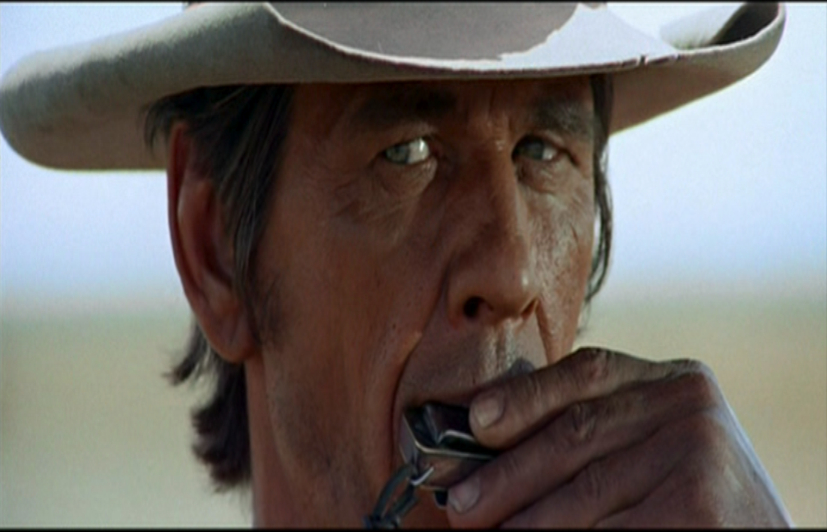

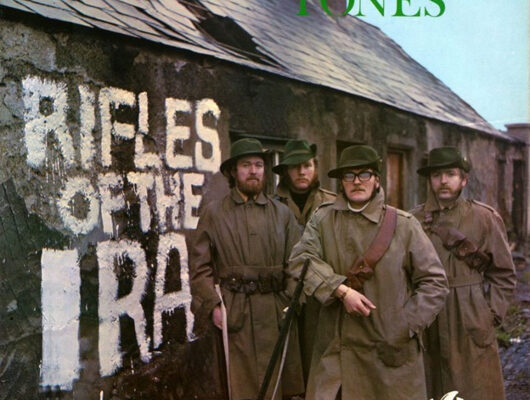
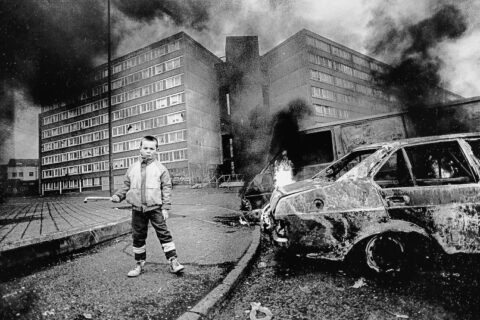

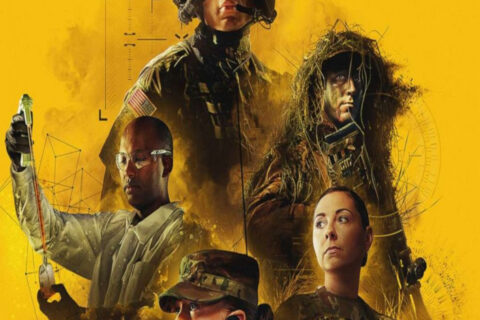
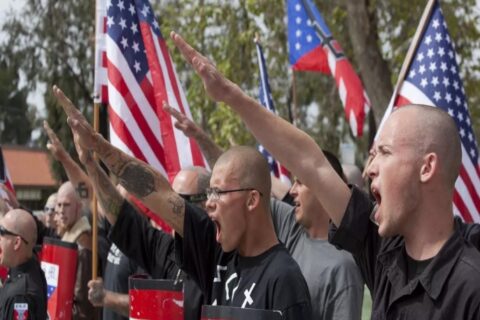
Great topic, and great article, sir! I could not agree with you more, albeit my knowledge of Irish history is severely lacking.
I love what I’ll call synchronicity; indeed, before I wrote the full article titled The New New John Brown’s Body down the page a piece, I wrote The Newer John Brown’s Body contained in the article and sent it to our eldest son asking him to “try this one on for size and let me know what you think.” He replied to me later saying that he thought it was well done, but also wanted to know what prompted me to write it. My answer was, ‘I wrote the parody because Southerners need an alternative to “Battle Hymn” and “John Brown’s Body” that may be easily memorized and taught to their children and grandchildren.’
The number of these things that I’ve written for my own children and grandchildren is growing with each new addition. I have one I wrote for the kids back in December titled ‘Twas The Night Before Christmas of 1864 as told by a (fictitious) Southern observer who had witnessed the wrath of General Sherman verbally inflicted upon his soldiers when he learned that his “bummers” had conspired to hide away the best part of their plunder from Gen. Sherman and his officers. Again, it tells a true story in verse and is easily memorized. Another one I wrote is called The Manna of the Southland, for the kiddos, which of course tells the story of why we eat black-eyed peas to bring in the New Year in verse and, as the title indicates, it was written “for the kiddos,” that they might easily memorize its lines and never forget them or the story they tell.
We’re on the same page, sir. Thanks for writing this article.
Thank you so much
The Ireland you love is dead and gone. It is now firmly in control of the Globohomo Elite, and the country is overrun by Africans and Muslims. The native Irish are despised and abused in their own native land.
The same is happening in all Western countries. I feel certain that Caucasians killing each other in Ukraine puts a smile on WEF and DAVOS faces. Even more reason for us to coalesce.
Quite true. If George Bernard Shaw were still here he would write a play entitled “Ireland, A Farce in Three Acts”. The Irish are a modern Marxist state similar to Australia and all the other British culture cast offs.
Sadly very true. But they out up a good fight for a long time and there is much we can learn from that.
Ignore they literally adopted a foreign type of government when independent and lost pretty much all Christian faith…
A couple informative sites for ya Harmonica –
https://ncrenegade.com/
http://nicholasstixuncensored.blogspot.com/
What’s next, shilling for Azov Battalion? How about the Bolsheviks? I couldn’t disagree more on the IRA and Irish nationalism in general. The Irish Republican Army (and all of it’s offshoots like the RIRA, INLA, etc.) were and still are a bunch of snivelling Marxists vermin (this is widely known throughout Europe) and godless thugs. They are about as leftist as it comes; the same goes for Sinn Fein.
Don’t believe me? Google images Sinn Fein pride parades and you will see exactly what I mean. They are VERY, very active with the lgbt agenda now and have been for years. Why don’t people understand this? For the life of me, I do not understand why so many continue to have this strange obsession with them. Not all nationalists/separatists are necessarily on our side; some are radical leftists. Remember, the Jacobins of revolutionary France also called themselves “nationalists”. It doesn’t always necessarily mean it’s a good thing.
Southern Nationalists have almost NOTHING in common with these child-killing scoundrels. NOTHING. Do you even know how many innocent people the IRA have murdered? Do you even know how many innocent families they terrorised within their own country? I’m sorry, but you have no idea what you’re talking about. We aren’t child killers and we aren’t leftists. Please pick another set of heroes. With all due respect young sir, you need to do your homework.
Keep in mind that the main object of Harmonica’s article is to instill in the minds of Southerners that we need to utilize the mediums of song, poetry and, well, the ancient method of story-telling in other forms, to pass down to our youth the proud heritage the blood which flows in their veins is a testament to. Whether or not Harminica’s Irish History squares with reality is not mine to say; as I intimated in my initial comment to the article on that point, that is one area I’m personally not very well educated in.
In any case, the main point of the article, at least as far as I can tell, is to inspire Southerners to tell the rich history of their brave and gallant forebears to the up and coming generations with purity and vigor. I personally see nothing wrong, and everything right, with this approach. Do you disagree?
What Terry said, and while this was not the main point of the article, Ireland and the Irish nationalist movement have changed rapidly in the past 30 years. The leftism is pretty new. Had Pearse and Collins lived until the 1930s, I am fully convinced both men would have become fascists. Sean South named the Jew and would physically separate young unmarried couples he thought were behaving indecently in public. As late as the early 90s Ireland was by far the most socially conservative country in Western Europe. That it has gone as wrong as it has in the past 30 years, and especially the past 10-15 years does not mean we can so easily dismiss the tactics they used.
Trying to tie the old SF into the modern SF is like trying to tie the Democrat Part of Jefferson, Jackson, Davis, and Wallace in with the Democrats of today.
Sean South would have started breaking heads if he ever saw a pride parade
What about our Scottish and English roots? Not to mention, most Southerners do not have Irish Catholic ancestry; they have Irish Protestant blood. Or, as we say, “Scots-Irish” roots. Very different. Perhaps the older, earlier incarnations of Irish nationalists saw the two people as essentially kin, in the days of Wolfe Tone and the Irish Republican Brotherhood. But the latter day socialist left-wing Irish nationalists wouldn’t dream of drawing such a comparison, and would probably be quite confused by the suggestion.
JEB Stuart, one of my all-time favourite Southern heroes, had mostly Northern Irish Protestant ancestry, as did Ol’ Hickory and many other great Southerners. I’m not sure the situation faced by our people is very comparable to the one in Ireland. There are a few parallels here and there, certainly. But they are quite vague, at best.
Do you want to know a city that had the largest number of IRA supporters and those who funded the PIRA directly for many years? Look no further than Boston, Massachusetts! NORAID is an organisation based there that still exists and continues to assist IRA convicts who fled their home country looking to find asylum in Massachusetts. Trump actually deported a few of them in 2017. Somehow, the thought of honourable southern nationalists allying with any outfit in Boston, of all places (the home of abolitionism) leaves a bad taste in my mouth.
I tend to describe the South as “Anglo-Celtic” to cover all my basis, but either way, the point of this article is to examine a particular strategy the Irish employed, one that can be easily used in Dixie.
Dixie has very little Greek influence, but we can still learn from Greek nationalists, especially in how they got Greeks in the late Ottoman period to identify as Greek rather than Roman.
Maximus Carolus, you make a good point. The “Scotch-Irish” have traditionally been called “Ulster Scots.” They may be the best natural soldiers of all Europeans. For those interested in a book about the Lowland Scots/Ulster Scots/Borderers, I recommend “The Steel Bonnets” by the late George MacDonald Fraser.
Sean South would have started breaking heads if he ever saw a pride parade
I”AM FULL BLOOD “IRISH”,I wear a patch on my hat thats says I”AM IRISH,and I don’t hestate to point it out to anyone messing with me,MY family came to america long ago,THROUGH CANADA,we were not allowed to come to america,WE WERE IRISH..so we told the ships captain,DROP US OFF IN CANADA,and we walked across canada to washington state,most of the old people died on the hike there,I only allow IRISH people in my house,and you’d better not be british,OR you may get your ass kicked before you leave…AND NOW FOR THE REST OF THE STORY…..
@Harmonica:
“Anglo-Celtic”
Now THAT term I can absolutely get behind, as I believe that is precisely what best defines the ethno-regional culture of the Southland. Unlike New England, who are a mixed bag as far as the working populace are concerned, overruled by a minority of old stock Yankee “blue-bloods”; the descendants of regicidal Puritan Roundhead upstarts. The South, along with the Tidewater/lower Mid-Atlantic, have always been a cavalier culture.
By the by, I did not intend for my previous commentary to offend, however sharp my tone was. Personally, I have a strong dislike for the IRA. I have Irish Catholic ancestry on my paternal side, so I grew up hearing a lot of the usual silly “26+6=1/up the ‘Ra!” rhetoric. My maternal side is strictly Anglo, by way of Virginia/Carolinas and southern Maryland. Needless to say, my mother’s family were never fond of that nonsense, and I was much closer to her side than my father’s, whose family I hardly knew much at all.
In any case, during a semester in Germany some years back, when I was still in school, I got to know a pair of fellas from Ulster who owned and operated the local watering hole in Fulda, where I attended school. They were both Catholics and they had no love at all for the IRA. According to them, both the Fenians and the Loyalist paramilitaries in the North are seen as nothing more than mobsters. Most people in both NI as well as the ROI feel this way. The domestic terror with which they have plagued those poor folks has now cancelled out any of the distant heroism once hailed by those in Pierce or Plunkett’s era. These romantic notions of a “free Ireland” have been overshadowed by decades of extortion, prostitution rings, and illegal gambling.
On the political front, Sinn Fein takes the lead in pro-immigration so fervently that the biggest running joke in Ireland is, “Sinn Fein: Brits Out, Browns In!”
‘According to them, both the Fenians and the Loyalist paramilitaries in the North are seen as nothing more than mobsters. Most people in both NI as well as the ROI feel this way.’. Spot on the money. The supposed ‘heroes’ are a stain on Ireland, North or South, Ulster, Munster, Connacht or Leinster. Only the delusional give them any respect. Always remember the PIRA were backed initially by Russia as a tool to remove British troops from the then West Germany.
@Arizona: please, go fed-post somewhere else. This is not a forum for babbling nut-rolls.